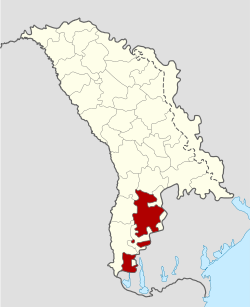By: Paul Goble
Turkey’s success in the South Caucasus is echoing across the former Soviet space as well as inside the Russian Federation itself; and not surprisingly, Moscow is worried. Azerbaijan is now openly an ally of Turkey and has Turkish military forces on its territory, something Russia had previously said it would never allow. Three of the four Turkic-majority countries in Central Asia—Kazakhstan, Kyrgyzstan and Uzbekistan—have taken note of the change in the balance of forces in the region in Turkey’s favor and are increasingly looking toward Ankara for guidance. And some Turkic nations inside the Russian Federation, Volga Tatars in particular, have organized pro-Azerbaijani and pro-Turkic demonstrations, which, despite their small size, troubled the central authorities in Moscow (Vestnik Kavkaza, November 29). Except for Azerbaijan, of course, these all represent overwhelmingly long-term challenges. Central Asian countries are not about to make any dramatic geopolitical shifts unless and until additional robust transportation links through the Caucasus make that compelling; whereas the Turkic peoples within the Russian Federation, however strongly they may identify with such pan-Turkic impulses, have few possible outlets for acting on them.
Nonetheless, there is at least one Turkic nationality in the post-Soviet space where Turkish involvement could present Moscow with a more immediate challenge. That is the Gagauz, an Orthodox Christian Turkic nation of 200,000 in southeastern Moldova that Moscow has exploited over the past 25 years, in combination with separatist Transnistria, to put pressure on Chisinau. Russian influence over the Gagauz provided an important bit of leverage for Moscow to oppose any domestic Moldovan moves against the Russian language and to ensure that Moldovans restrain themselves from thinking about uniting with Romania, something that could bring North Atlantic Treaty Organization (NATO) forces deeper eastward (see EDM, June 5, 2018; Nezavisimaya Gazeta and, January 29, 2019; Windowoneurasia2.blogspot.com, January 30, 2019). Gagauzia (red) in Moldova (Source: Wikimedia Commons)
Gagauzia (red) in Moldova (Source: Wikimedia Commons)
 Gagauzia (red) in Moldova (Source: Wikimedia Commons)
Gagauzia (red) in Moldova (Source: Wikimedia Commons)When Russia and Turkey were cooperating more closely in the past, Moscow worked hard to ensure that Ankara would not take any steps in Gagauzia that could undermine Russian aims. Indeed, Moscow-based commentators saw Russian-Turkish cooperation on this point as critical to maintaining Russia’s influence inside Moldova (Nezavisimaya Gazeta, October 24, 2019). But now the situation has changed. On the one hand, Moldova has elected a pro-Western president who is calling for the withdrawal of Russian forces from Transnistria and the reintegration of that breakaway region into Moldova’s legal space—precisely the kind of political situation that, in the past, Moscow responded to by exploiting Gagauz demands for autonomy or even independence to restrain Chisinau. But on the other hand, Turkey and Russia are now in a far less cooperative relationship (beyond continued surface-level niceties), with Turkey having successfully asserted itself in the South Caucasus. Therefore, at least in principle, Ankara seems that much more willing to act on its own rather than in concert with Moscow in Moldova.
What makes the present situation so intriguing is that Turkey may be less willing to promote Gagauz nationalism than it was earlier lest it appear to be in league with Russia, even as Moscow’s interest in whipping up Gagauz activism against the Moldovan state again appears to be on the rise. Were Ankara to promote Gagauz national assertiveness, such actions would certainly be viewed in many NATO capitals as supportive of Russian policy against a democratic government in Chisinau—a perspective that could undercut Turkey’s broader goals of remaining in the Western alliance while pursuing its own regional goals. Thus, if the Gagauz do move to complicate Chisinau’s life, that almost certainly will be the result of Russian rather than Turkish efforts. That said, it is far from clear whether Russia will be able to achieve as much as it may hope for if Turkey is cautioning the Gagauz against any such brazenness or at least not providing the kind of backing it did earlier.
One indication of Moscow’s concerns with this new reality is reflected in an unsigned article posted by Zen.Yandex that discusses the Gagauz case under the provocative title, “The Small Turkic State That Arose in Eastern Europe in 1990 and Disappeared Four Years Later” (Zen.Yandex, November 30, 2020). The piece suggests that, even in concert with Transnistria, Gagauzia never had a real chance for independence—even when it enjoyed both Turkish and Russian support. The most the Gagauz can hope for, then, is autonomy within a Moldovan state. To the extent that this is Moscow’s position (and there is every reason to believe it is) and to the degree that Turkey eschews again fishing in these troubled waters (which seems likely as well), that new attitude could have enormous consequences both for Moldova and for Russian-Turkish competition on the former Soviet space.
First and foremost, it would mean that in Moscow’s dispute with Chisinau about Russian forces in Transnistria and the future status of this breakaway republic, the Kremlin will have given up one of its most effective tools to squeeze the Moldovan government and maintain the status quo. But it would also mean something else: If Turkey does not promote Gagauz goals at a time when its influence seems higher than at any point in the past, Ankara will show itself to be pursuing policies that reflect a narrower Turkish national interest rather than the pan-Turkic agenda Ankara has sometimes proclaimed in the past and that many other Turkic nations have had an interest in. That could undermine Turkey’s goals elsewhere. So as a result of this cross-cutting combination of interests and concerns, what Moscow and Ankara do or refrain from among the Gagauz in the coming days and weeks is likely to have serious consequences not only for Moldova but also for Russian and Turkish policy across the entire post-Soviet space.
No comments:
Post a Comment